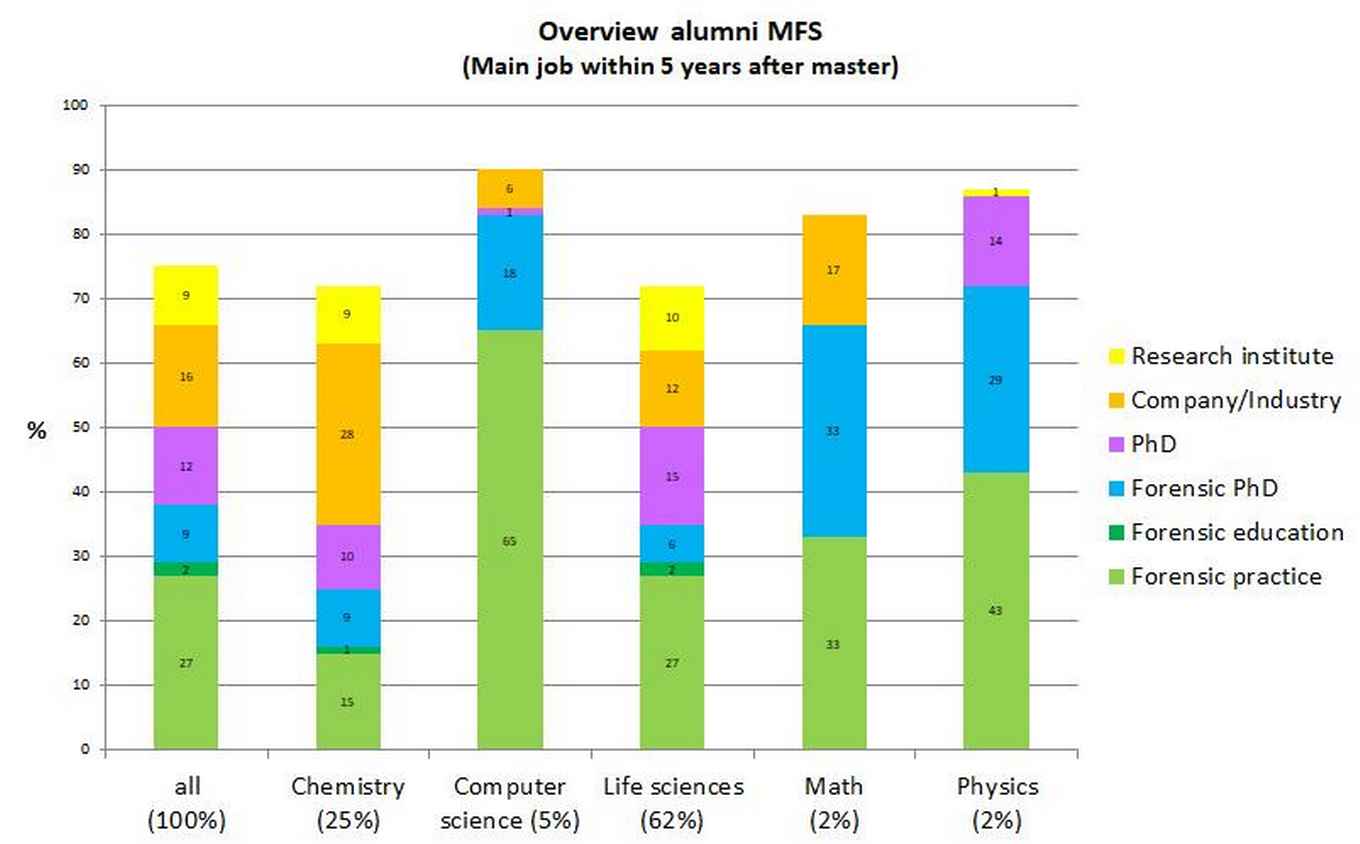Careers
Our graduates are employed around the globe in governmental agencies, crime laboratories, medical facilities, legal offices, research centers and more. From DNA analysts to law enforcement professionals and crime scene investigators, our interdisciplinary programme is launching the next generation of professionals in the high-demand field of forensic science.

Mirjam did the Master’s in Forensic Science and is now doing a PhD at the University of Amsterdam.
Career prospects and your background
If you would like to gain further insight into the relationship between your own specialism and forensic science, read the case below and then click on your own specialism. There you can find the topics related to your field, descriptions based on the career prospects of an academic researcher, forensic expert, and forensic advisor, and some career examples of our alumni.
The Case
6.41 p.m.
The police get a phone call from Mr. and Mrs. Smith, stating that their 14-year-old daughter has not returned from school that day. She is not answering her phone and her friends also have no clue where she could be. The parents are very worried that something has happened to their child and the police take the case very seriously. They start searching for the girl by first inspecting the area around her school. After a few hours, they find the bike of the girl, as well as her mobile phone and backpack, in the forest between the school and the Smith’s house. Besides the partly crushed bike and the personal belongings of the girl, no clearly visible traces are found.
Based on circumstantial information, the police fear the girl to be kidnapped, or even worse. They start a large scale investigation to find the girl and the perpetrator(s). But solving this case will not be easy and definitely requires an interdisciplinary team of forensic investigators. Do you want to know what you could add to solving this case based on your Bachelor's expertise? Then please click on (the field of) your Bachelor education below and find out.